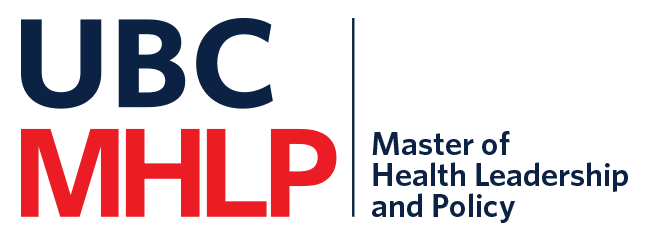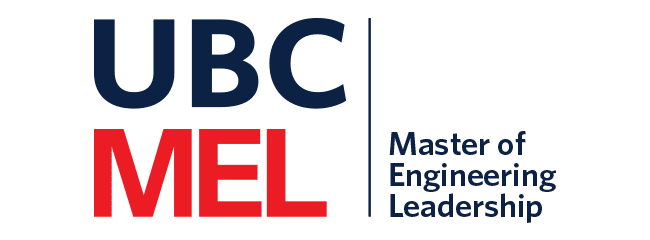
Moving to Canada
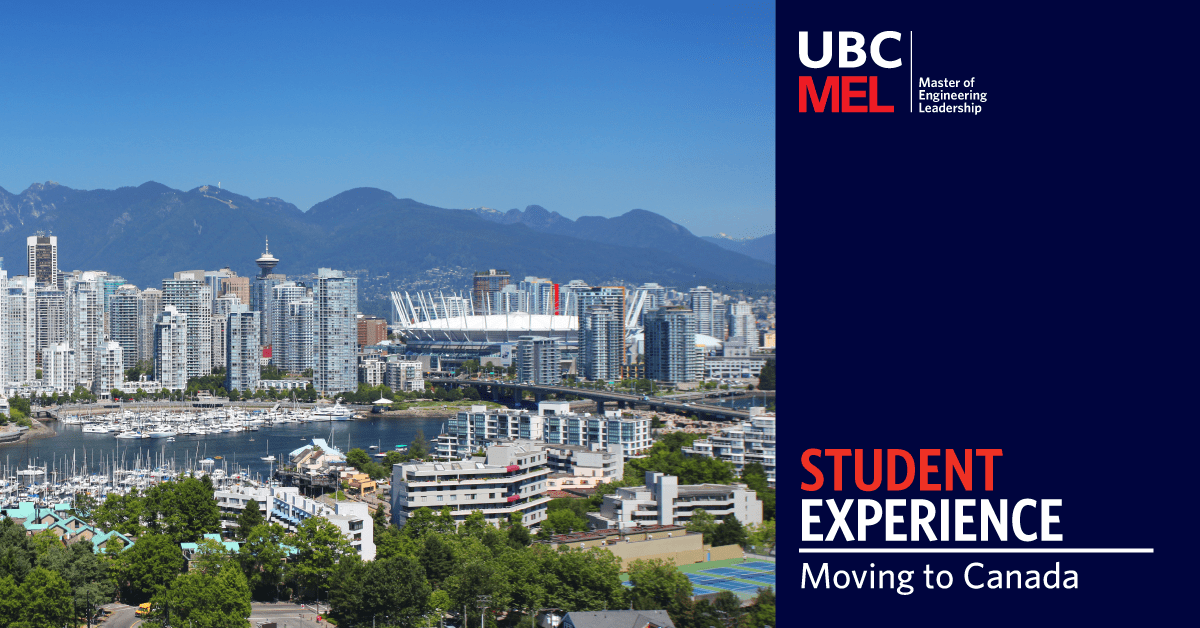
Moving to a new country to study involves a lot of unknowns – about where you’ll live, how you’ll adapt to a new culture and what kind of job you’ll have after you graduate. We asked three Master of Engineering (MEL) graduates to share their experiences of moving to Canada.
The students
Rahsan Ece Cam: 2020 graduate of the MEL in Urban Systems. Moved from Dubai with her two daughters (aged five and nine).
Mehmud Iqbal: 2021 graduate of the MEL in Clean Energy Engineering. Moved from Bangladesh with his wife.
Rafael Tozzi: 2021 graduate of the MEL in Integrated Water Management. Moved from Brazil with his wife and daughter (aged nine).
Parniyan Golkar: 2021 graduate of the MEL in High-Performance Buildings. Moved from Iran.
Finding a place to live
Figuring out where you will live is a big decision, particularly when you are looking for accommodation in a city like Vancouver, where vacancy rates are low and rents are high.
If you want to live on the UBC campus, Acadia Park is a great option for couples and families.
This was an excellent choice for Rahsan, who moved to Vancouver with her two children. “Acadia is an amazing community that addressed all my needs,” she says.
“My neighbours were also students with kids, so they had the same challenges and we were able to help each other. Everyone was so welcoming, we were within walking distance of the elementary school, and my kids could play in front of our apartment with other children.”
Mehmud also appreciated the convenience of living on campus. “Coming from a different country and not knowing anyone here, I liked having the peace of mind that I had a place to live on campus and I wasn’t going to be scammed.”
Parniyan lived on campus, which she says was peaceful and convenient, making it easy to get to classes and participate in campus activities and clubs.
Rafael and his family hired a relocation company to find an apartment for them based on their specific criteria, including budget and location.
The company then presented them with various options and took care of the application process. Rafael, his wife and daughter moved into an apartment in Burnaby (a city bordering Vancouver on the east) near the Gilmore SkyTrain Station, where they still live.
Transitioning to a new culture
Everyone who moves to a new country will experience situations very different from their home country, both good and bad.
Rahsan, for example, was surprised to find that in Canada, IKEA doesn’t assemble furniture for you (and she has stories to tell about putting together an entire apartment’s worth of flat-packed furniture before the arrival of her children!).
Coming from Brazil, Rafael was pleasantly surprised by the feeling of safety he had when riding public transit. He and his wife had chosen Canada for its welcoming and progressive culture.
“We wanted to give our daughter the opportunity to live in a country with values aligned with our own when it comes to equity, gender rights, racism and Indigenous reconciliation.”
Parniyan notes that as an immigrant, you are constantly learning about your new country and its culture.
“What I found is that even though I am not an extrovert, it was important that I push myself to take the first steps to engage with others. So I attended networking sessions, volunteered, played badminton at the recreation centre and joined a dance club. These all helped me transition into my life here and make friends.”
But the truth is, it can be hard to adjust. The climate is different, the food is different and at times all the “newness” can be tiring.
“It was challenging and it is still challenging,” says Mehmud. “Our life has changed drastically – everything from housing and food to the culture.
Even though I had several international work assignments before, living somewhere for one or two months under a company arrangement is completely different from being on your own in a new country.
I’m so glad I had my wife with me while going through this transition. For a single person, it would be even more difficult.”
All four students noted how helpful it was to talk about their challenges and difficulties with others who had just moved to Canada. And Parniyan adds that she found it very useful to get involved in activities to stay busy and better manage emotions of homesickness and loneliness.
Moving with your children
If you move to Canada with your children, you will apply for a study permit for each child so that they are eligible for free education within the public school system.
Rahsan’s children loved their new school with its more relaxed approach and location surrounded by forest. They particularly enjoyed the outdoor learning periods and joining the Acadia-School bike bus to experience the forest in depth.
“It’s like a dream world for them,” she says.
Rafael says the first few weeks were initially hard for his daughter, who had only basic English language skills from her schooling in Brazil.
“But two months later she was speaking English, getting together with friends for sleepovers and feeling totally at home here in Canada,” he says. “I am so proud of her.”
Moving with your spouse
If you are an international student studying full-time, your spouse can apply for a Canadian work permit valid for the same length of time as your study permit. They do not need to have a Canadian job lined up before applying.
A civil engineer in Brazil, Rafael’s wife spent her first eight months in Canada working as a salesperson at a Nike store to bring in a Canadian income and improve her English.
In April 2022, she was hired as an engineer in training at a civil engineering company, and after one year she will be eligible for her professional engineering designation.
With a secure job in Dubai, Rahsan’s husband initially stayed behind when she moved to Vancouver with their children to start the MEL.
While the intent was that he would visit every few months, the lockdowns of the COVID-19 pandemic made this impossible. After two years apart, Rahsan’s husband quit his job and moved to Canada.
He’s now looking for a position where he can use his skills as a civil engineer to manage managing large-scale projects in Vancouver.
Mehmud’s wife leveraged her experience from Bangladesh and joined UBC as an HR professional, which makes the couple eligible for staff housing. The two have moved from student housing to staff housing on campus, and Mehmud commutes to his job.
Staying in Canada: work permits and getting a job
To work in Canada after graduating, you will need to apply for a post-graduation work permit that enables you to work in the country for up to three years.
When you apply for this permit, you will also apply for an extension to your spouse’s work permit and children’s study permits.
During this period you can apply for permanent resident status, which is the first step in becoming a Canadian citizen.
Applying for a job in Canada can be an exercise in patience and persistence. Rahsan says that the first steps of her job search were a bit stressful because some employers specifically wanted Canadian work experience for managerial roles.
To achieve her goals, she researched Canadian companies working in the Middle East market and reached out to people on LinkedIn. “I am grateful for taking these steps and for making connections from Vancouver who valued my Middle East experience!” she says.
Making full use of your network, gaining Canadian experience in capstone projects and being persistent are all strategies that graduates say can ultimately pay off.
Rahsan is currently working as a Design Project Manager for EllisDon (a leading construction services company delivering over $5 billion worth of construction projects annually in every market sector around the world), Mehmud is working for FortisBC (the largest distributor of natural gas, Renewable Natural Gas and piped propane in British Columbia) as a Conservation and Energy Management Specialist, Parniyan is a Project Manager for E3 Eco Group (one of the most well-respected sustainable building consulting firms in Western Canada), and Rafael, after spending seven months as a Project Manager for the City of Vancouver’s Groundwater Strategy is moving into a new role as Principal Civil Engineer for Advisian, an engineering consulting company.
(Read about our alumni who have used the MEL and MHLP to make a new life in Canada and advance in their careers.}
Tips to make the transition easier:
- Apply for your visa right away! It can take a long time to process, and many factors are outside of your control.
- Create a financial plan that includes potential employment scenarios for you and your spouse so that you can move ahead with confidence.
- If you have children, think about ways to make the transition easier for them. Rahsan came to Vancouver ahead of her children to set up their apartment. Rafael bought a coveted Xbox for his daughter.
- “Be humble,” says Rafael. “You will have to take a step back and you won’t have the same status you had in your home country.”
- Reach out to others: Remember that other newcomers are experiencing the same things you are and will understand and empathize with your difficulties and challenges. And Canadians, according to the MEL graduates interviewed for this article, are welcoming, friendly and very eager to help out.
- Rahsan encourages people to make the most of Vancouver’s beautiful surroundings: “Make time and enjoy the forests around the UBC campus – rain or shine!”
- Embrace all of the new experiences: “Celebrate all your ‘firsts’ in Canada – your first car, your first Christmas in your new country and the first time your child sees snow,” says Rafael.
- Stay open to new experiences: “Canada is very multicultural and there is a place for everyone here,” says Parniyan. “You can join up with others from your own culture and you can mingle with people from other backgrounds. It makes life more beautiful and interesting.”
Application Deadlines
The online application portal for the January 2025 has closed.
Get ready to apply!
Admissions for the 2026 intake will open on January 1, 2025.
How to ApplyAssess your Eligibility
Determine if your professional experience and academic background make you a fit for your desired program.
Start AssessmentJoin us for an
Info Session
Sign up for our latest online information sessions and discover what our programs have to offer.
Sign Up NowSelected Articles
Selected Articles
Selected Articles
Featured Faculty and Staff
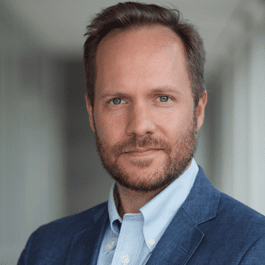
DR. JUSTIN BULL
"It is rewarding to connect with students over the course of their studies and to see them thrive professionally after graduation. "
Featured Alumni
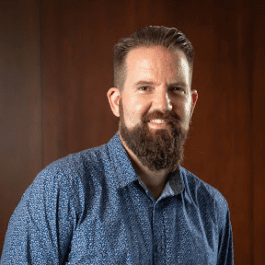
Justin Krzanowski
Justin Krzanowski is integrating the leadership and health-care knowledge he acquired over the course of his MHLP in Seniors Care to lead a team tasked with developing and implementing discharge policies and procedures from the acute care setting.
